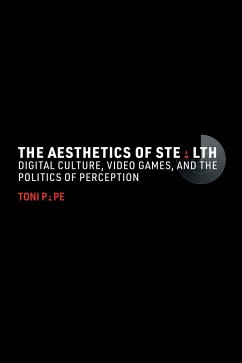
Mainstreaming and Game Journalism (eBook, ePUB)

PAYBACK Punkte
9 °P sammeln!
Why games are still niche and not mainstream, and how journalism can help them gain cultural credibility. Mainstreaming and Game Journalism addresses both the history and current practice of game journalism, along with the roles writers and industry play in conveying that the medium is a "mainstream" form of entertainment. Through interviews with reporters, David B. Nieborg and Maxwell Foxman retrace how the game industry and journalists started a subcultural spiral in the 1980s that continues to this day. Digital play became increasingly exclusionary by appealing to niche audiences, relying o...
Why games are still niche and not mainstream, and how journalism can help them gain cultural credibility. Mainstreaming and Game Journalism addresses both the history and current practice of game journalism, along with the roles writers and industry play in conveying that the medium is a "mainstream" form of entertainment. Through interviews with reporters, David B. Nieborg and Maxwell Foxman retrace how the game industry and journalists started a subcultural spiral in the 1980s that continues to this day. Digital play became increasingly exclusionary by appealing to niche audiences, relying on hardcore fans and favoring the male gamer stereotype. At the same time, this culture pushed journalists to the margins, leaving them toiling to find freelance gigs and deeply ambivalent about their profession. Mainstreaming and Game Journalism also examines the bumpy process of what we think of as "mainstreaming." The authors argue that it encompasses three overlapping factors. First, for games to become mainstream, they need to become more ubiquitous through broader media coverage. Second, an increase in ludic literacy, or how-to play games, determines whether that greater visibility translates into accessibility. Third, the mainstreaming of games must gain cultural legitimacy. The fact that games are more visible does little if only a few people take them seriously or deem them worthy of attention. Ultimately, Mainstreaming and Game Journalism provocatively questions whether games ever will-or even should-gain widespread cultural acceptance.
Dieser Download kann aus rechtlichen Gründen nur mit Rechnungsadresse in A, B, BG, CY, CZ, D, DK, EW, E, FIN, F, GR, HR, H, IRL, I, LT, L, LR, M, NL, PL, P, R, S, SLO, SK ausgeliefert werden.













